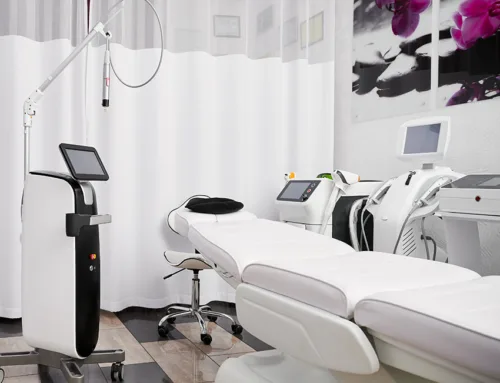Pros and Cons of Healthcare Advertising
Examining the pros and cons of healthcare advertising often feels like navigating a delicate balance between promoting public health and avoiding commercial pitfalls. This exploration into healthcare advertising aims to illuminate both its effectiveness in patient education and healthcare decision-making, as well as the potential risks of misleading consumers and ethical dilemmas. The following sections provide insights into the real-world implications for patients, providers, and the healthcare system, all without delving into technical jargon.
Key Takeaways
- Healthcare advertising is a multifaceted tool aimed at educating patients, raising awareness about health services, fostering patient engagement, building trust, and attracting new patients through strategies like leveraged social media and public campaigns.
- The industry faces significant challenges such as the potential spread of misleading information, privacy concerns related to data handling and social media, and a complex set of ethical considerations that must be navigated carefully in light of various regulatory standards.
- Effective healthcare advertising strategies include ensuring accurate and understandable information, targeted advertising to reach relevant audiences, and strict compliance with regulations such as HIPAA to protect patient privacy and maintain ethical advertising practices.
The Power of Healthcare Advertising
Advertising in healthcare serves as a potent instrument not only for promoting services and products but also for gaining a competitive edge, improving visibility, and understanding the needs and expectations of consumers.
Raising Awareness and Education
Healthcare advertising plays a critical role in educating the public by conveying important information about available healthcare services, treatments, and preventative health measures. This educational aspect empowers individuals to make informed decisions regarding their medical care. Healthcare marketing is designed to actively engage patients in managing their health, potentially influencing lifestyle choices and medication adherence.
Digital media has expanded the scope of healthcare marketing’s educational function through various channels such as:
- Social media users creating groups for people with chronic diseases or rare illnesses to share their experiences and receive vital support and data.
- Strategies focusing on patient involvement encourage individuals to actively participate in managing their medical care and treatment options.
- Initiatives aimed at raising public awareness educate society on crucial health matters, encouraging the adoption of healthier lifestyles.
These diverse approaches within healthcare advertising are part of a strategic initiative aimed at boosting collective understanding and education about health services, as well as improving access for patients seeking quality medical care.
Building Trust and Credibility
In the realm of healthcare, the foundational bond between providers and their patients hinges on trust. The purpose of advertising in this sector is to cultivate a robust reputation with patients through lasting impressions, thus forging a dependable and trustworthy image.
Social media emerges as pivotal for healthcare professionals seeking to forge connections with patients. It offers an arena for disseminating important information, interacting with those who may become future patients, and fostering a sense of community. Central to these efforts is the emphasis on transparency and truthfulness within healthcare marketing practices to nurture essential trust among patients.
Attracting New Patients
In the competitive arena of healthcare, securing new patients is a pivotal goal. Healthcare marketing tactics that are successful stand out by addressing patient requirements and surpassing their expectations.
The effectiveness of strong marketing strategies is exemplified by the notable increase in online appointment bookings observed by a local healthcare provider, a surge credited to impactful advertising endeavors. By captivating prospective patients through targeted social media campaigns, healthcare providers can not only enhance their online presence but also generate greater revenue streams, thereby underscoring the financial advantages of deploying effective healthcare advertising tactics.
Potential Pitfalls of Healthcare Advertising
While advertising in the healthcare sector offers numerous advantages, it also presents significant challenges. Issues such as inaccurate information, concerns about patient confidentiality, and ethical dilemmas can pose considerable obstacles to achieving effective outcomes in healthcare advertising.
Misleading Information
Deceptive advertising in healthcare can have serious consequences by misguiding vulnerable individuals, potentially leading to inappropriate health decisions. Regulations exist to prevent exaggeration of benefits or unfounded claims about prescription drugs, but some entities may exploit regulatory gaps to spread false information.
As telemedicine start-ups rapidly expand, they facilitate easier access to potent medications which might come with substantial risks and scant evidence backing them up. Laws and rules exist specifically designed to ensure honesty and ethical conduct in health-related advertisements. Complex interactions among pharmaceutical companies, advertisers, agencies, and media outlets can sometimes result in misleading practices slipping through despite these safeguards.
Privacy Concerns
In today’s data-driven era, protecting patient privacy has become a significant concern in healthcare advertising. The involvement of various businesses in online and social media promotion of pharmaceuticals can raise privacy and security issues. When healthcare professionals engage with social media, they face risks such as the spread of substandard information, infringement on patient confidentiality, and blurring lines between personal and professional conduct.
It is crucial for marketing personnel within healthcare organizations to be well-educated about policies safeguarding patient privacy to avoid breaches and adhere to legal requirements. This underscores the importance of ensuring that every member of the medical workforce, from staff to employees, is well-informed about state and federal regulations aimed at protecting patients’ private information.
Ethical Considerations
Advertising within the healthcare sector presents critical ethical challenges, especially when those promoting prescription drugs fail to comply with regulatory guidelines comparable to those for drug companies. Oversight of direct-to-consumer advertising for controlled medical devices falls under the FDA, whereas the FTC monitors advertising for unrestricted devices, illustrating a multifaceted supervisory framework.
It is noteworthy that many physicians in practice and training regard engaging with patients on social networks, whether for personal or professional purposes, as an area fraught with ethical concerns. This highlights both the intricate nature of these communications and the critical importance of managing them responsibly.
Strategies for Effective Healthcare Advertising
Examining the best strategies for navigating the landscape of healthcare advertising is crucial in light of these challenges. This includes maintaining precision in information dissemination, crafting advertisements that reach specific audiences, and adhering strictly to industry regulations.
Ensuring Accurate Information
Ensuring the dissemination of correct information is a critical tactic in healthcare promotion. The FDA’s ‘Bad Ad Program’ provides a mechanism to pinpoint and call out any deceptive or incorrect advertising concerning prescription drugs.
To address negative comments associated with these advertisements, it is important to not only avoid false data but also to use straightforward and easy-to-understand language. Digital advertising tools that provide immediate tracking and analytical capabilities are essential for verifying that healthcare marketing campaigns meet performance benchmarks while maintaining compliance within industry norms.
Targeted Advertising
In the vast sea of online data, focused advertising offers healthcare providers a bridge to their ideal audience. Using digital advertising techniques, these suppliers can target certain demographic groups and locations, boosting the effectiveness and precision of their promotional activities.
To optimize engagement with particular segments of consumers, healthcare advertisers must leverage buyer personas, scrutinize analytics data closely, and deliver targeted material that resonates with those audiences. This strategy should be bolstered by designing persuasive calls-to-action and continuously tracking advertisement outcomes to inform adjustments based on empirical evidence.
Compliance with Regulations
It is imperative that advertising within the healthcare sector strictly complies with privacy regulations, such as HIPAA. Ensuring patient consent and maintaining data anonymity in advertisements for healthcare services are key aspects of this adherence. Oversight agencies, including the FDA and FTC, play an important role in overseeing these compliance requirements.
The Role of Social Media in Healthcare Advertising
Undoubtedly, the advent of social media has transformed the landscape of communication, with notable effects on advertising within the healthcare sector. Exploring how social media plays a part in healthcare advertising reveals its possible advantages and hurdles.
Expanding Reach and Engagement
Healthcare providers are harnessing social media sites to expand their influence and connect with patients, including senior citizens, across various social networking sites. By disseminating research-backed data, crafting informative blog content and video materials, as well as engaging in digital forums, physicians can educate consumers about health stories and healthcare topics.
Consequently, these activities on social media platforms provide patients the opportunity to access crucial information regarding health care.
Navigating Privacy and Security Risks
While social media offers advantages for healthcare advertising, it also introduces significant privacy and security risks. Integration of social media strategies into healthcare promotion can potentially lead to noncompliance with HIPAA and state privacy regulations, exposing organizations to legal repercussions and fines.
When healthcare professionals share patient-related information on social networking platforms, they risk violating federal HIPAA/HITECH acts as well as state-level privacy laws. Minimizing these risks requires healthcare providers to have a thorough understanding of HIPAA rules regulating the handling and sharing of patient data.
Establishing an Authentic Online Presence
Establishing a genuine online presence is pivotal in the realm of healthcare advertising. When physicians are active on the internet via professional organizations, they have a robust platform to disseminate health information and champion wellness.
By tapping into social media forums, doctors can circulate reliable health knowledge and participate in meaningful conversations. Such engagement not only cultivates trustworthiness but also reinforces community bonds among patients while nurturing invaluable online communities.
Summary
In today’s interconnected environment, advertising in the healthcare sector is a multifaceted and fruitful undertaking. It serves as a powerful tool that transcends mere promotion of services, crucially contributing to educating patients, fostering trustworthiness, and drawing in new patient populations. Despite its benefits, it confronts obstacles such as the potential dissemination of incorrect information and concerns around privacy and ethics that must be surmounted. By adopting strategies focused on disseminating truthful content, tailoring advertisements to specific audiences, and adhering strictly to regulations, successful navigation through these complexities can be achieved.
While social media offers an opportune channel for outreach. It demands diligent attention to upholding privacy and security measures. Ultimately cultivating an online social media presence that genuinely informs and engages respectfully with communities forms the backbone of impactful healthcare advertising efforts.









